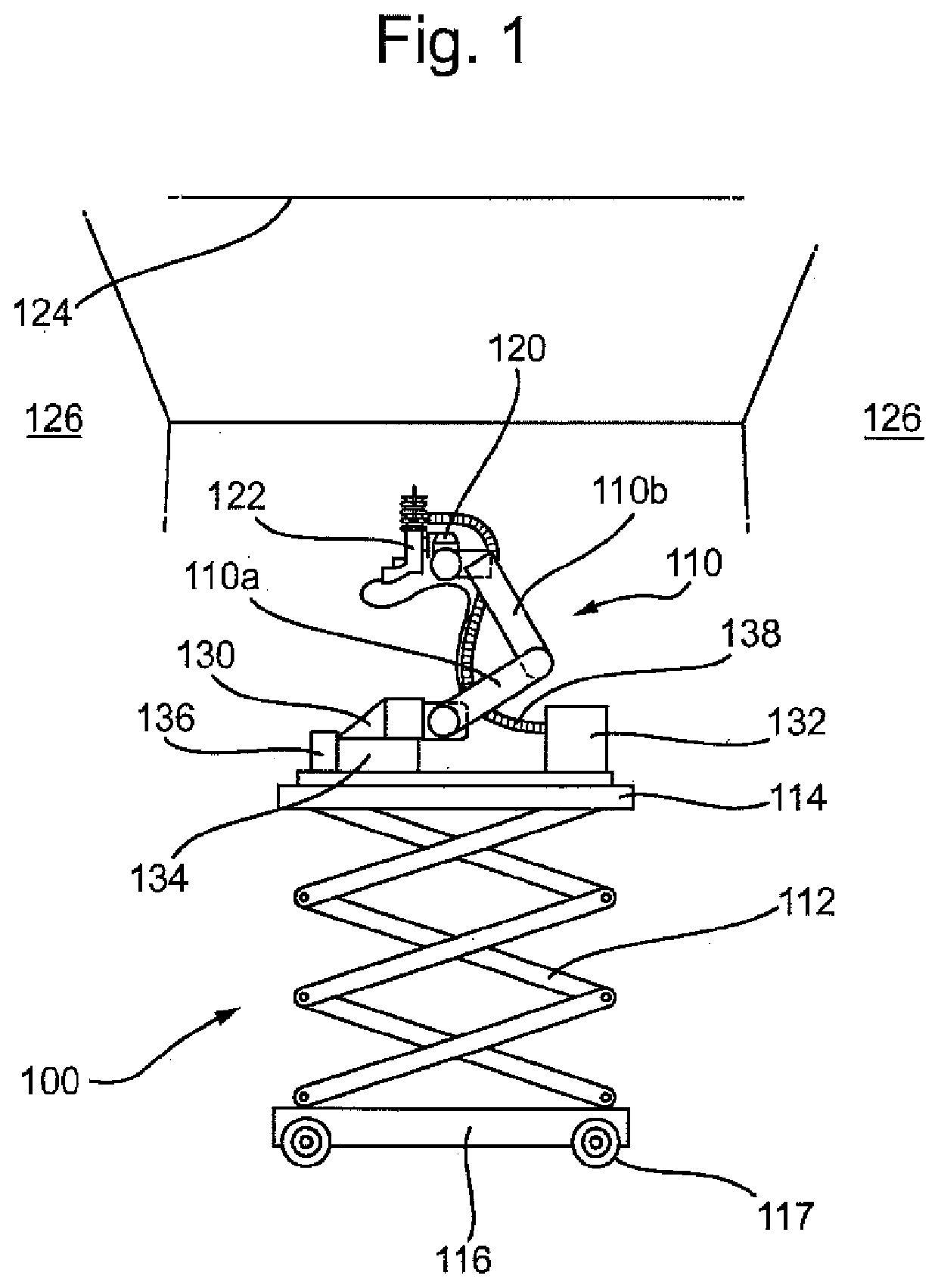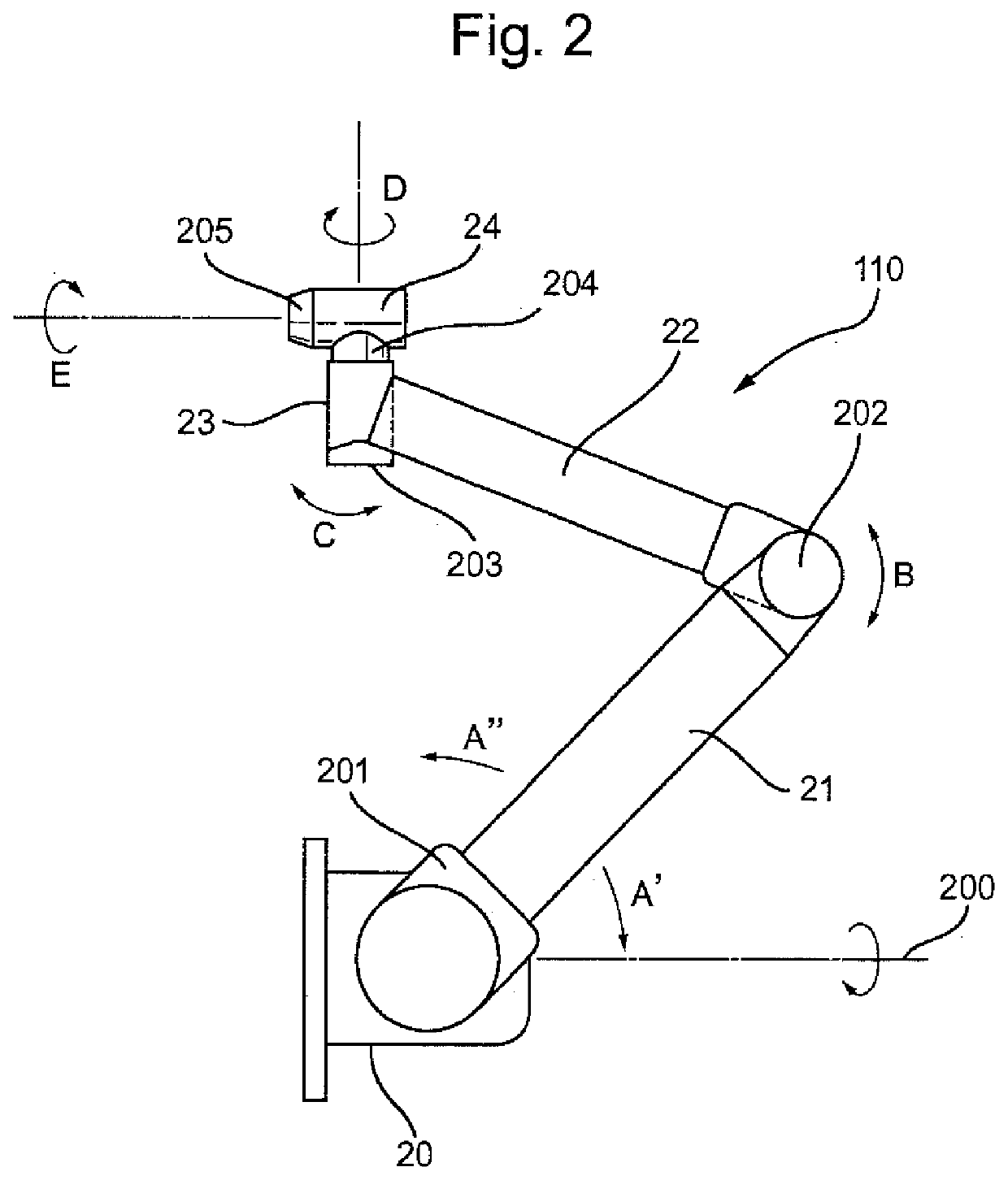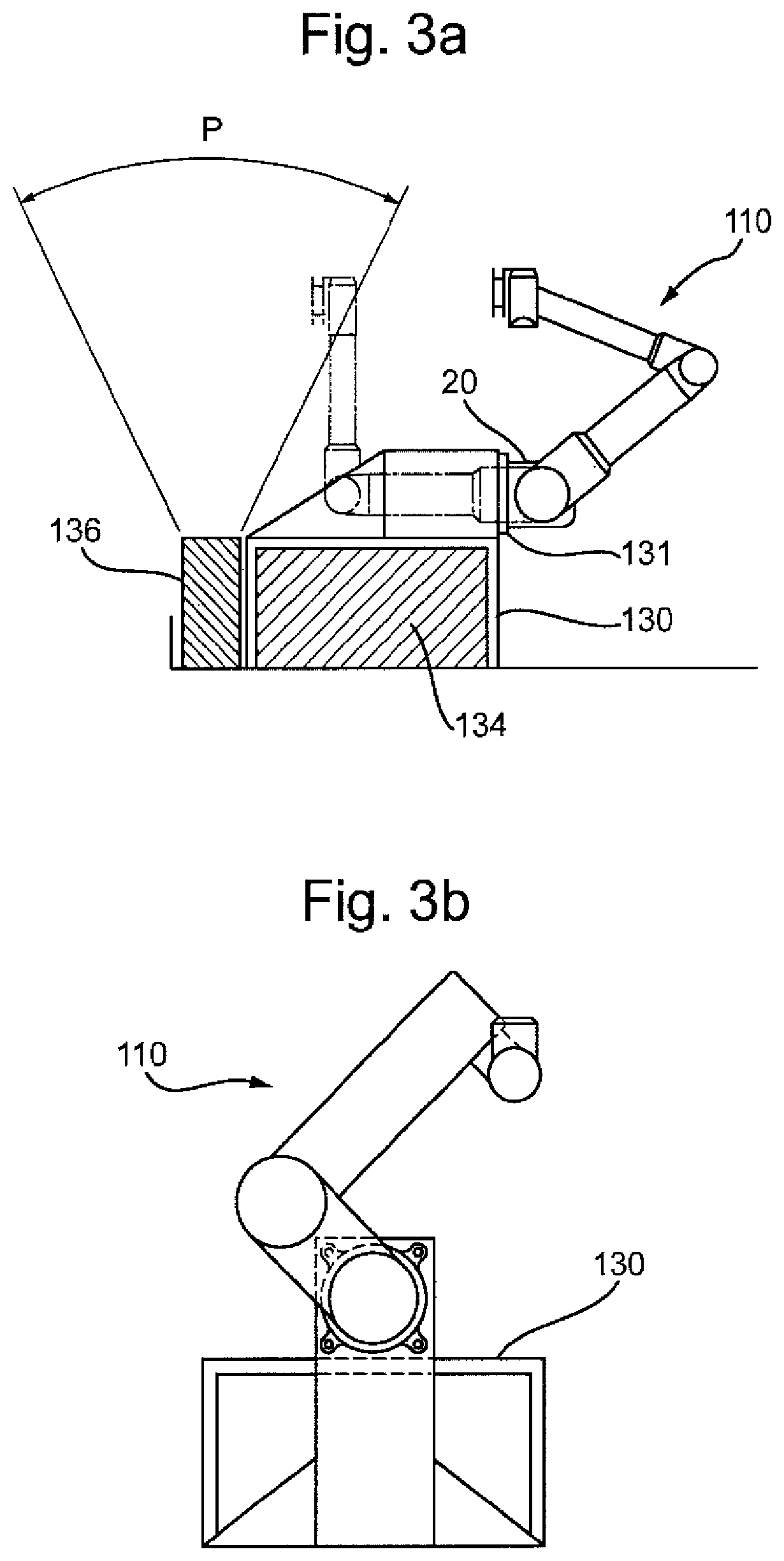Mobile robotic drilling apparatus and method for drilling ceilings and walls
a robotic drilling and ceiling technology, applied in the direction of programmed manipulators, turning machine accessories, manufacturing tools, etc., can solve the problems of high dust levels, difficult operation, and time-consuming marking up process, and achieve the effect of accurate drilling
- Summary
- Abstract
- Description
- Claims
- Application Information
AI Technical Summary
Benefits of technology
Problems solved by technology
Method used
Image
Examples
Embodiment Construction
[0064]One aspect of a preferred embodiment of the present invention is shown generally in FIG. 1.
[0065]In this embodiment, there is provided a robotic drilling apparatus 100 having a robotic arm 110, with one end (a base end 110a) mounted to a substructure 112 and a moveable end 110b of the robotic arm 110 connected to a mount 120 for holding a drilling device 122.
[0066]A processor, not shown, can control the movement of the robotic arm 110 and the substructure 112 in order to manoeuvre the drilling device 122 to drill into a ceiling 124 or wall 126. For example, the height of the substructure 112 can be adjusted to move the drilling device 122 in a vertical direction towards a ceiling 124 or to a specific height on a wall 126. The robotic arm 110 can also be adjusted along various axes to position, orientate and move the drilling device 122 with respect to a ceiling or wall for drilling holes therein.
[0067]As shown in FIG. 1, the robotic arm 110 may be mounted on the substructure 1...
PUM
| Property | Measurement | Unit |
|---|---|---|
| force | aaaaa | aaaaa |
| force | aaaaa | aaaaa |
| weight | aaaaa | aaaaa |
Abstract
Description
Claims
Application Information
 Login to View More
Login to View More - R&D
- Intellectual Property
- Life Sciences
- Materials
- Tech Scout
- Unparalleled Data Quality
- Higher Quality Content
- 60% Fewer Hallucinations
Browse by: Latest US Patents, China's latest patents, Technical Efficacy Thesaurus, Application Domain, Technology Topic, Popular Technical Reports.
© 2025 PatSnap. All rights reserved.Legal|Privacy policy|Modern Slavery Act Transparency Statement|Sitemap|About US| Contact US: help@patsnap.com



